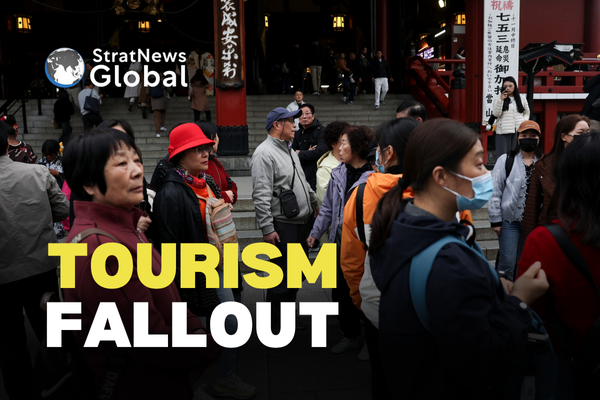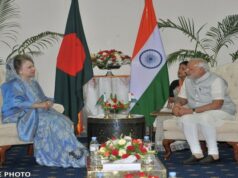Within days of Beijing’s travel warning against visiting Japan, tourism businesses across the country are already feeling the strain. Tokyo-based East Japan International Travel Service, which relies heavily on Chinese group tours, has reported an 80% loss in bookings for the rest of the year.
“This is a huge loss for us,” said Yu Jinxin, vice president of the company, which caters mainly to travellers from mainland China. The firm’s rapid downturn reflects the broader economic damage Japan now faces as the diplomatic dispute between Tokyo and Beijing deepens.
The travel advisory followed comments by Japanese Prime Minister Sanae Takaichi, who said that a Chinese attack on Taiwan threatening Japan’s survival could trigger a military response. Her remarks provoked strong backlash from China and prompted the government in Beijing to warn citizens against travelling to its East Asian neighbour.
Billions at Stake as Flights and Bookings Cancelled
Tourism has been one of Japan’s fastest-growing sectors, accounting for around 7% of its gross domestic product, according to the World Travel & Tourism Council. Chinese visitors, including those from Hong Kong, make up about 20% of all arrivals.
The boycott could deal a significant economic blow, with the Nomura Research Institute estimating potential annual losses of about 2.2 trillion yen ($14.23 billion). Since Friday’s travel warning, shares in Japanese tourism and leisure companies have plunged.
More than 10 Chinese airlines have already announced full refunds for Japan-bound flights through the end of December. An airline industry analyst estimated that roughly 500,000 tickets have been cancelled, signalling a sharp decline in tourism flows heading into the winter season.
Diplomatic Rift Shows No Signs of Easing
The crisis stems from Takaichi’s comments earlier this month, which triggered one of the most serious diplomatic disputes between Asia’s two largest economies in years. China’s Consul General in Osaka issued a series of inflammatory remarks on social media, while Chinese state media attacked Takaichi directly.
In response, Japan warned its citizens in China to exercise caution and avoid large gatherings. Beijing has demanded that Takaichi withdraw her statements, but Tokyo maintains they are consistent with existing policy. So far, there are no signs of an imminent breakthrough in the standoff.
Adding to the tension, China has halted screenings of new Japanese films, while Japanese entertainers popular in China have been quick to declare their support for Beijing’s “One China” stance. “China is like my second homeland,” Japanese singer MARiA wrote on Weibo, expressing hope to avoid a backlash.
Industry Braces for Long-Term Fallout
Tour operators fear that a prolonged dispute could have lasting consequences. Yu Jinxin said her company had survived past diplomatic flare-ups, such as the 2012 island nationalisation that sparked mass protests in China, but warned that the current crisis feels different.
“If this lasts for one or two months, we can manage,” she said. “But if the situation continues to worsen, it will obviously have a major impact on our business.”
With no resolution in sight, Japan’s tourism sector once a symbol of its economic recovery now faces one of its most challenging periods in over a decade.
(with inputs from Reuters)





